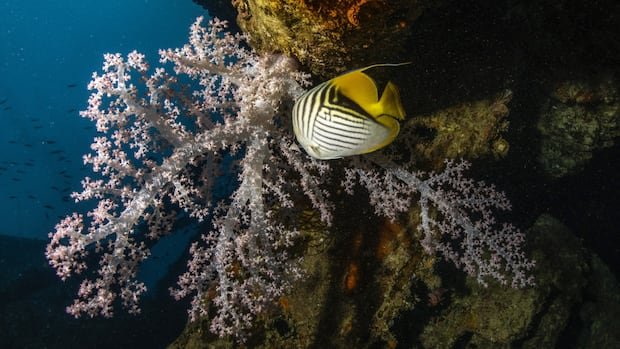A recent study challenges the common belief that fish do not experience pleasure, suggesting that some fish actively seek pleasurable experiences and may even develop cravings for them. Marta Soares, a behavioral physiologist at the University of Porto in Portugal, highlighted that fish have often been underestimated in terms of their cognitive abilities.
Traditionally, research on fish has primarily focused on their stress levels. However, in a recent study published in Proceedings of the Royal Society B, Soares and her team delved into whether fish can experience positive emotions akin to pleasure. The study aimed to shed light on the possibility of fish having emotional responses similar to other vertebrates like cats and dogs.
The researchers examined mutualistic interactions between species, particularly the relationship between the bluestreak cleaner wrasse and the threadfin butterflyfish in coral reefs. These interactions involve the cleaner wrasse feeding on parasites from the butterflyfish’s skin while providing grooming services. The study explored whether these interactions went beyond hygiene and actually elicited positive feelings in the fish.
Through a series of experiments, the researchers observed that the butterflyfish showed a preference for areas where they had interacted with the cleaner wrasse, indicating a positive memory association. Further investigations into the fish’s opioid system, responsible for regulating pain and pleasure, revealed that administering an opioid mimic increased the fish’s attraction to the cleaning zone, whereas a blocker of opioid receptors diminished their interest.
Additionally, the researchers tested whether the fish merely liked the cleaning or actively sought it out. By introducing obstacles in the tank, the study found that the fish were willing to navigate around barriers to reach the cleaners, regardless of receiving the opioid mimic or blocker.
While some scientists have raised questions about interpreting these findings as evidence of fish experiencing pleasure, the study underscores the importance of understanding fish behavior and emotions. Soares hopes that these findings will lead to a shift in how fish are perceived and treated in settings like aquaculture and aquariums, emphasizing the need to recognize and respect the emotional capacities of fish.

